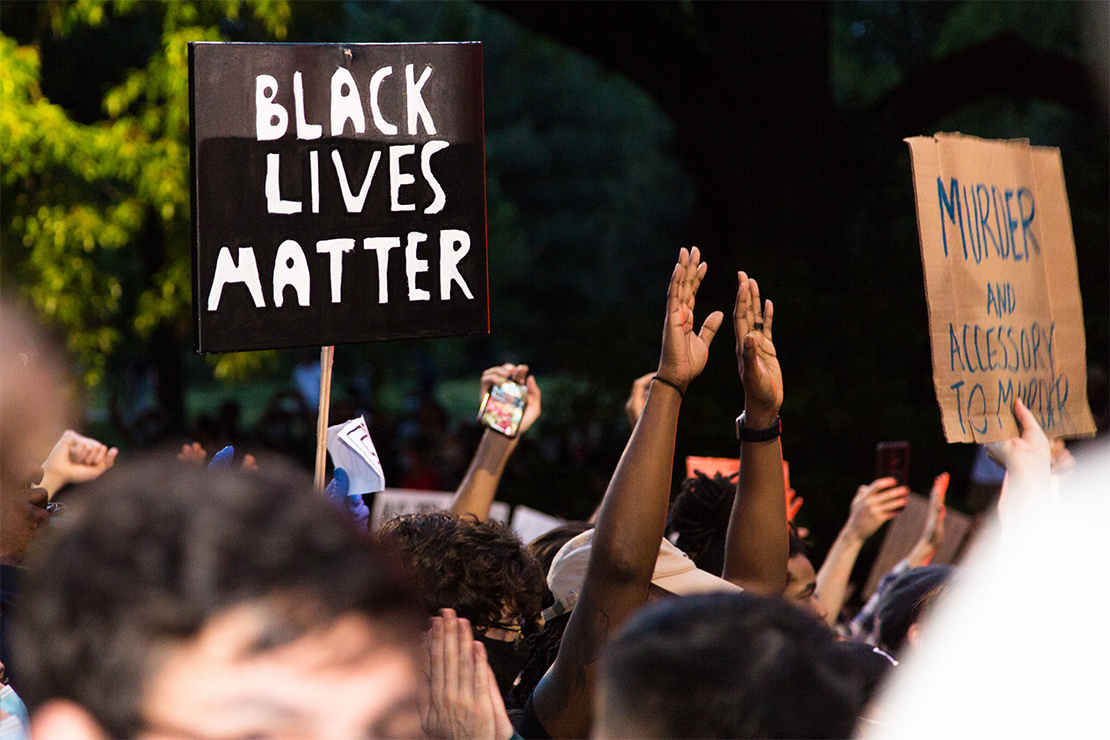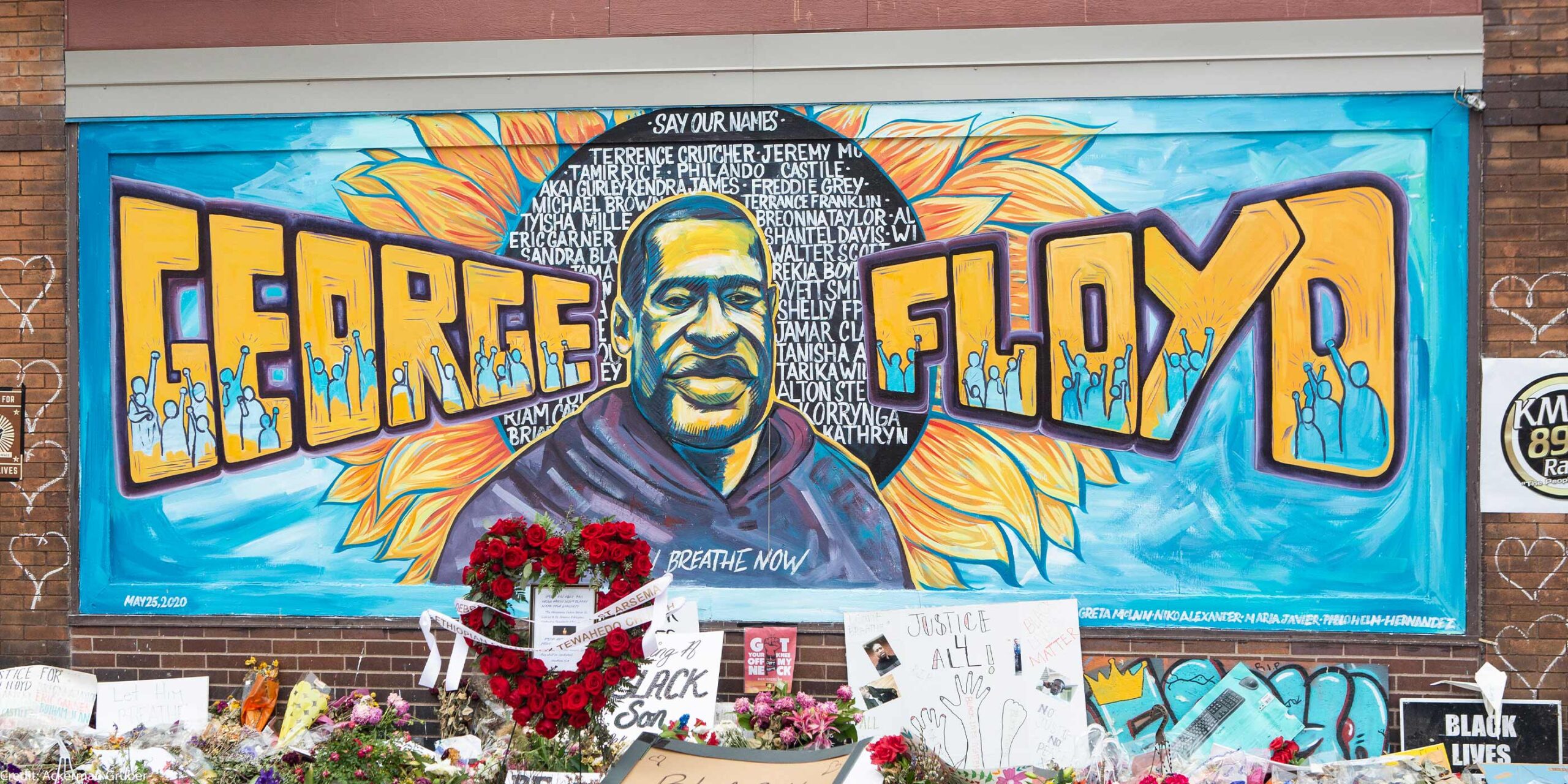Five years ago, the world watched the murder of George Floyd for over nine excruciating minutes. In the weeks and months that followed, millions of people flooded the streets to condemn police violence. For some, George Floyd’s murder was a disturbing reminder of police brutality and racism. For others, it was an awakening to the horrors of discriminatory policing. In many cities, people protested Floyd’s death, further entangling them with police misconduct.
In New York City, dozens of protesters levelled excessive force claims against the New York City Police Department (NYPD). Protestors lawfully marched through the Bronx—calling for an end to police violence as neighbors leaned from nearby windows and cheered—when NYPD officers in riot gear encircled them, trapped them, and then assaulted them with batons and fists. As police pressed hundreds of people together, one woman screamed that she couldn’t breathe. Officers looked away. Her plea meant nothing to them just as the same plea from George Floyd meant nothing to Officer Derrick Chauvin.
This violence reflected a deeper failure across the country: police department policies, practices, and culture encourage police to disregard civil rights protections. Despite progress made over the last few years, today the Trump administration is encouraging police brutality and dismantling oversight of police departments known to violate the Constitution. But we are not backing down. The ACLU and our partners across the country are coming together to advance transparency about police brutality and push forward reforms that prevent abuse.

Immediately following George Floyd’s murder, people in communities across the country organized, made their voices heard, and demanded investigations into the systemic abuse they and their neighbors faced every day. Taking office less than a year after Floyd’s murder, then-President Joe Biden worked to support police reform across the country. Under his administration, the Department of Justice (DOJ) conducted thorough investigations into urban and rural police departments, including overlooked and under-resourced places. The DOJ investigated 12 law enforcement agencies for abuse of power. They completed 11 before Trump took office in January 2025 and, in every place they investigated, they found police had a practice of violating constitutional rights that was so common it had effectively become policy.
In seven states—Massachusetts, New York, Kentucky, Tennessee, Mississippi, Arizona, and Minnesota—the DOJ found a combination of routine use of excessive force and the disproportionate targeting of Black people. Based on reviewing extensive records, interviewing scores of officers, and joining officers in the field, the DOJ found that misconduct was not a result of a few “bad apples,” but a consequence of department policies, practices, and culture.
The reports are devasting account of human suffering. In Louisville, a 14-year-old child was badly injured after police set a dog on him and allowed the dog to gnaw his arm. In Memphis, police punched and kicked people who were handcuffed or otherwise already restrained. In New York, police strip-searched nearly every person they arrested. = In all seven places, investigators found evidence that police were targeting people based on race.
Shedding light on these horrors was supposed to foster accountability and be a step towards ending police brutality. Historically, the federal government facilitates a binding agreement with police departments found to have violated the Constitution that requires them to address the well-documented problems within the department. But instead of following through to deliver accountability, safety, and justice, the Trump administration is turning its back on these horrors.
In an executive order issued in April, President Trump directed the DOJ to create guidance for law enforcement agencies “to aggressively police communities,” directed the Department of Defense (DOD) to increase police militarization, and directed the attorney general to criminally-prosecute local actors who supposedly interfere with policing—where interference is code for requiring compliance with the Constitution. Last week, the DOJ withdrew consent decrees designed to cure rampant constitutional violations in Minneapolis and Louisville, and retracted findings in Arizona, New Jersey, Tennessee, New York, Oklahoma, and Louisiana.
These actions do not just make it harder to achieve the change we once envisioned, they send a message that the government is willing to look away from harm being inflicted on our communities – even when the harm is plain as day.
The reality, however, is that communities have never waited on the federal government to do the work. While the DOJ has played a crucial role in addressing police abuse, police reform has often been advanced by local coalitions that demand change in their own backyards. The commitment to ending police brutality remains strong because people understand that safety must include safety from police violence.
In the Seven States Safety Campaign, the ACLU and community groups across the country are filling the police-accountability void by monitoring police violence and continuing the push for reform. Last week, we sent demands for police records under state freedom of information laws to police agencies in each of the seven states where the DOJ found excessive force and racial targeting. The demands primarily ask for documents that officers create when they use force or conduct a stop, which should shed light on any continued officer excessive force and racial profiling. Some demands ask for policies and data on police activity; others ask for records related to officer-committed sexual violence. Together, responses would allow the ACLU and community partners to understand where problems persist and what reforms are needed.
While law enforcement officials might try to resist transparency, the demands fit comfortably within what they’re required to provide under state law. They must respond in good faith to unite us in our efforts to prevent tragedies and protect civil rights. If they don’t, we’ll see them in court.
As we reflect on George Floyd’s tragic murder, and the police brutality against protesters in its aftermath, we must remember that this untenable violence can be avoided. The Trump administration’s abandonment of reform despite damning evidence of police brutality is a manifestation of an ongoing, urgent national problem with police brutality, especially toward Black and brown people. State and local officials have the power to implement reforms that prevent police abuse and ensure that police comply with the Constitution. They must act, because protecting civil rights is not optional if we want to live in a just and safe society.

